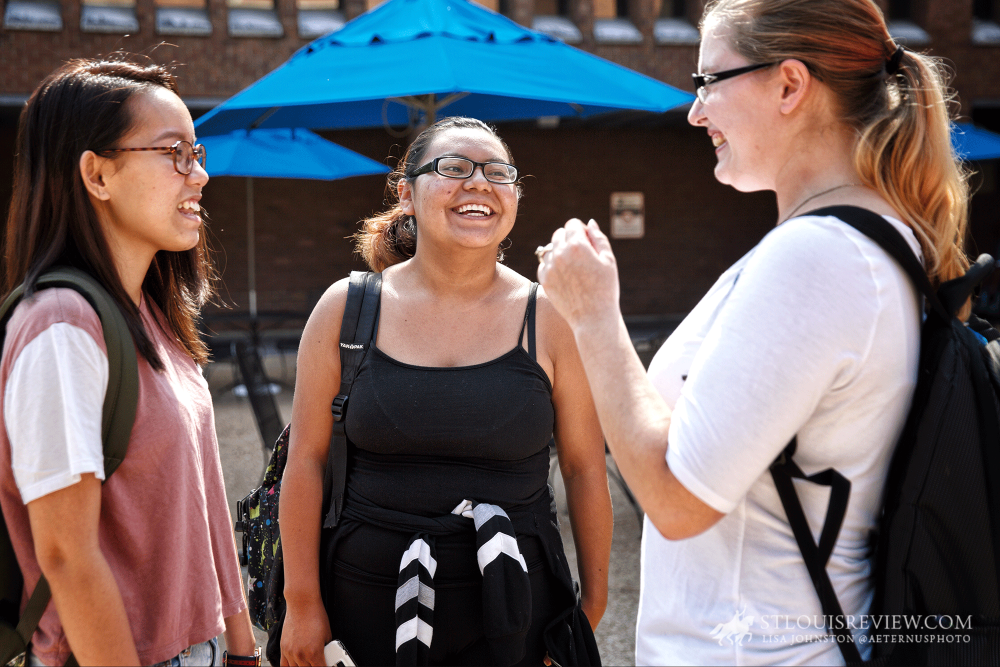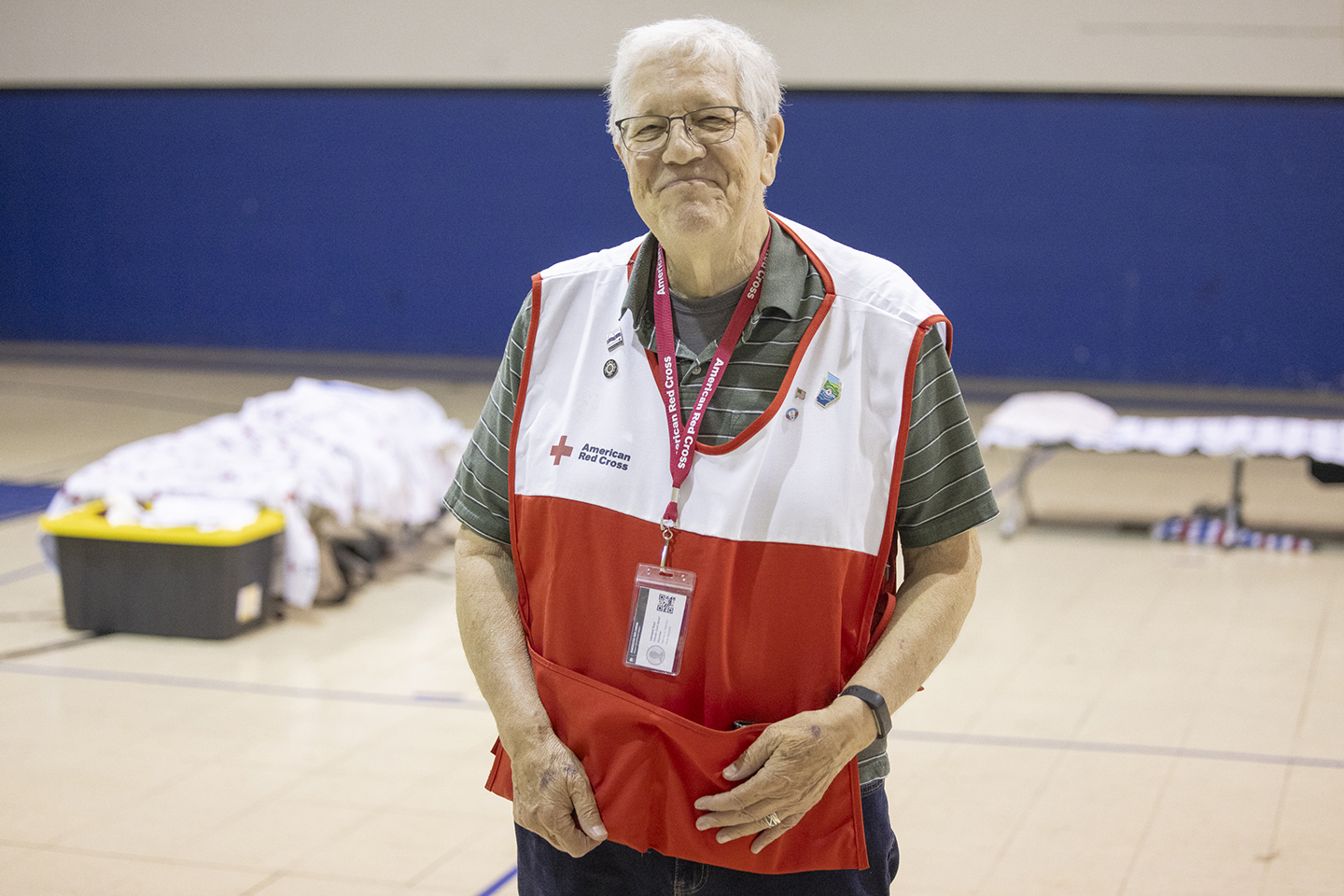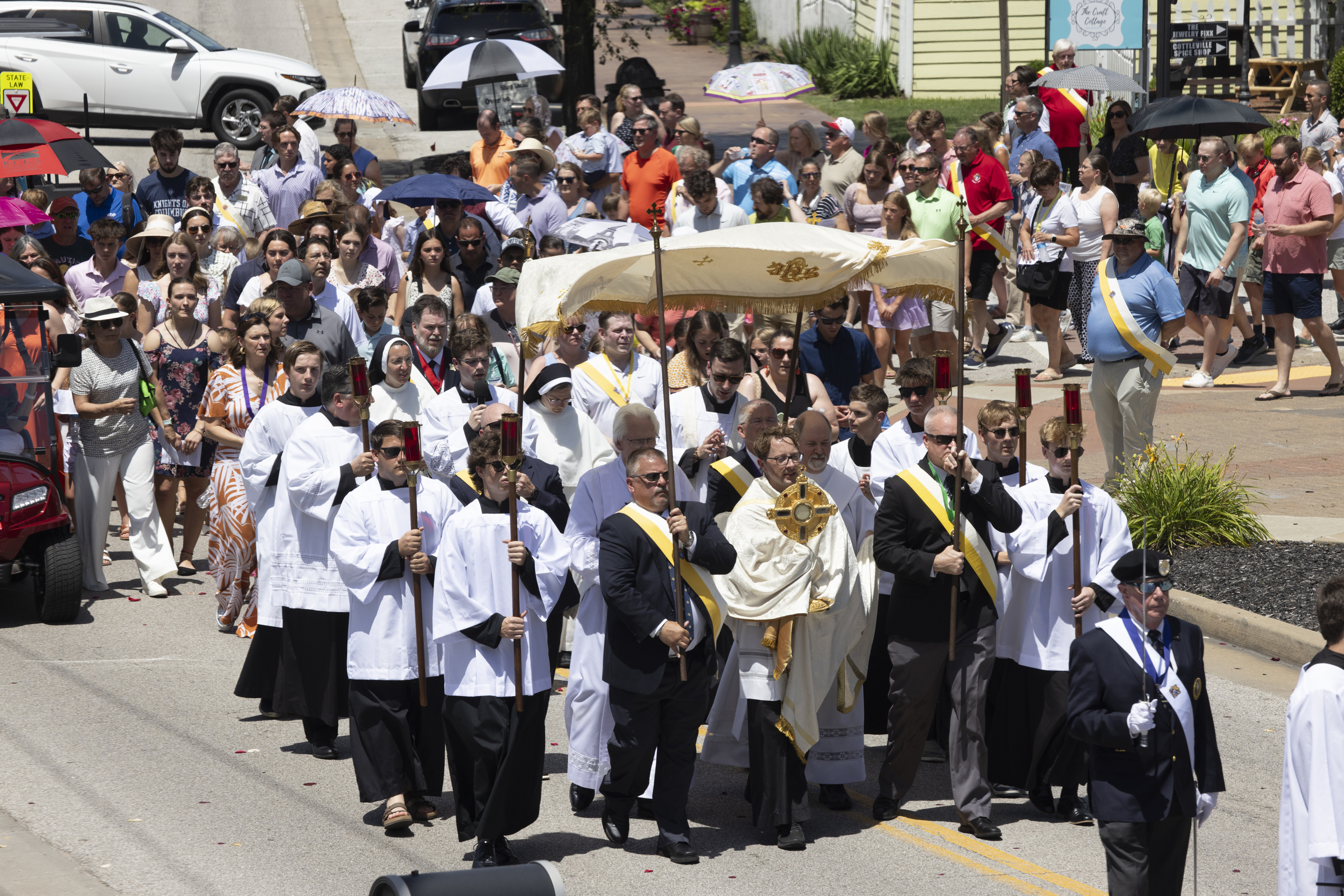Friends of DACA student question policy change

Molly Paterson met Areli Reyes in third grade at Flynn Park Elementary School in University City.
“We were in Girls Scouts together and things like that and became really good friends” through middle school and high school, Paterson said.
She knows her friend as a hard worker in and outside of school. Reyes, a member of Our Lady of Guadalupe Parish in Ferguson, worked at a frozen yogurt shop through high school and in community college.
Reyes’ friends describe her as a typical American girl, one with a bright future. But she was brought to the United States from Mexico by her parents at age 7. Her legal status, gained as part of the Deferred Action for Childhood Arrivals program, is now threatened and she faces possible deportation.
“She has gone through the same steps as me ever since she came to America, and I never saw her as anyone different than me or my peers,” said Paterson, a senior studying business at Bradley University in Peoria, Ill. “She is an American kid. This is her country. She has lived here the majority of her life. I can’t fathom her having to leave her home.”
Reyes is studying to become a nurse. Earlier this year, the Missouri Hospital Association reported the vacancy rates for staff nurses in hospitals statewide is 15.9 percent. The American Nurses Association reports several effects of a nationwide nursing shortage and has called on Congress to support legislation to bolster the number of registered nurses and nurse faculty.
The U.S. Justice Department announced earlier this month that it would wind down an Obama-era program that allowed undocumented immigrants who came to the U.S. as children to remain in the country. Eliminating DACA could affect more than 800,000 young adults, leading to many deportations.
“It doesn’t make any sense to me,” Paterson said. Reyes, who came to the U.S. at age 7 and is in the DACA program, “has never done anything wrong. She’s always been the sweetest person I’ve ever known. She works and is contributing to the economy. She’s going to school and wants to be a nurse to help people. I don’t understand why that would be taken away from her when she’s trying to benefit our society.”
Reyes was the first person Deja Bowie met at University City High School. “She asked me to sit down with her and a couple other people at lunch,” Bowie recalled.
Bowie had no clue that her friend, who spoke fluent English, was born in Mexico and lacked documentation allowing her to stay in this country. Bowie found out during a typical teenage sleepover their sophomore or junior year
“I was a little bit surprised, but it didn’t make me think anything less of her,” Bowie said. “She’s a great person. I know her mom and her family, and they’re great people, too. They all wanted the best for her. If coming here was the best thing for them to do, then I’m fine with that.”
She is worried about Reyes being deported.
“She has her plan set out for the next couple years,” Paterson said. “To think all of that might be taken away is just crazy. If anything, I feel she’s done a lot more for the community and working toward her goals than I’ve done.”
Bowie, who works at a grocery store, now is living in Houston where her mom moved for a better job opportunity. After the hurricane hit Houston, Reyes was the only former classmate to check up on her.
Amy Diemer of Catholic Legal Assistance Ministry, a program of St. Francis Community Services, said that as long as the immigrant children met eligibility requirements, they could get DACA protection to work legally in the United States for two years and apply for a renewal. If they are eligible for renewal and submit the paperwork before Oct. 5, they could stay in the U.S. for two more years before being subject to deportation. Otherwise deportation could begin in March. There is little chance of a path to citizenship or legal status for them unless Congress acts.
Diemer argues that the removal of DACA protections will lead to the destruction of the family. “The children will have to go back to a country where they don’t even know anyone,” Diemer said. “These kids are American.”
Kris Walentik, an immigration attorney with the ministry, knows a number of the young people here under the DACA policy who would like to join the U.S. military service or have siblings born in the U.S. serving in the military. “Congress needs to stand up now and find a permanent solution,” Walentic said.
>> Learn more
A “Catholic Teach-In on Migration: Creating a Culture of Encounter” will be held from 6:30 to 8:30 p.m. Monday, Oct. 30, at St. Cletus Parish Hall, 2705 Zumbehl Road in St. Charles. Invited are people of goodwill with an interest in social justice and who are open to learning from others’ experiences and the Church’s teaching on the rights of refugees and asylum seekers.
The inaugural Sister Antona Ebo Social Justice Conference will take place from 8 a.m.-3 p.m. Saturday, Sept. 30, at the Cardinal Rigali Center in Shrewsbury. Rev. Starsky Wilson, former co-chair of the Ferguson Commission, president and CEO of the Deaconess Foundation and pastor of St. John’s United Church of Christ, will be the keynote speaker. The conference also will feature workshops on immigration as well as the death penalty, voice of the poor, human trafficking, care for God’s creation, school-to-prison pipeline, and health and mental health.
The events are a collaboration among archdiocesan offices and groups. To register for either event, contact Marie Kenyon at (314) 792-7062 or email mariekenyon@archstl.org.
Molly Paterson met Areli Reyes in third grade at Flynn Park Elementary School in University City. “We were in Girls Scouts together and things like that and became really good … Friends of DACA student question policy change
Subscribe to Read All St. Louis Review Stories
All readers receive 5 stories to read free per month. After that, readers will need to be logged in.
If you are currently receive the St. Louis Review at your home or office, please send your name and address (and subscriber id if you know it) to subscriptions@stlouisreview.com to get your login information.
If you are not currently a subscriber to the St. Louis Review, please contact subscriptions@stlouisreview.com for information on how to subscribe.







